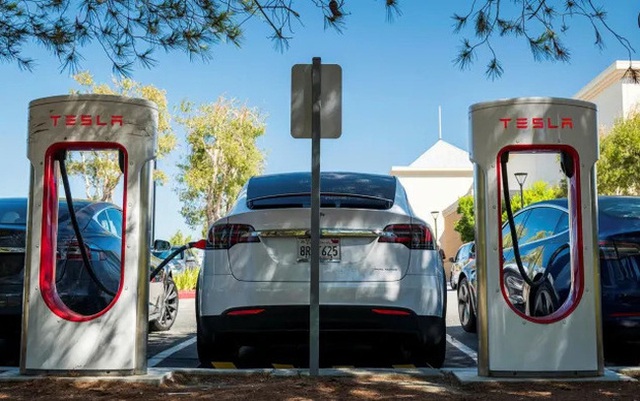Tesla suddenly stepped back into obsolete technology, signaling a change in the entire electric vehicle industry?
- Tram Ho
Back to old technology
Technological progress shouldn’t be like reverse gear. But that is what is happening in the world of electric vehicle batteries after the price of raw materials skyrocketed.
Tesla, a leader in electric vehicle development, is switching the batteries used in all of its vehicles globally to batteries that analysts predict will soon become obsolete.
The company run by billionaire Elon Musk will use batteries made of iron in its cars. This type of battery is also known as a lithium iron phosphate (LFP) battery.

This technology is widely used in simple devices such as electric golf carts and residential backup power systems. But as for electric cars, they have long been seen as an ineffective option. Globally, about 10% of all electric vehicle batteries produced today are made of iron.
The biggest drawback of this type of battery is the lower operating range. The material used in the iron-based battery has a lower energy density, and therefore shorter distances per charge, than the widely used nickel-based lithium-ion battery. For this reason, most car manufacturers outside of China have switched to a second type of battery: using nickel, cobalt and manganese as the core materials.
But switching to iron-based electric vehicle batteries has an important advantage: price. The battery is the most expensive part in an electric vehicle. Older batteries are considerably cheaper, mainly because of the price of the raw materials that make them up. The price of batteries made from iron is about 30% cheaper than batteries made from nickel.
Due to rising commodity prices and falling profits, battery manufacturers have raised the prices of lithium-ion batteries. For example, LG Energy Solution, which supplies batteries to Tesla, Porsche and BMW, has increased its prices by a tenth this year as nickel prices quadrupled in 2021.
Save on collection costs
Batteries made from iron are more heat-stable, meaning a lower risk of fire and explosion. The recall of 140,000 Chevrolet Bolt vehicles manufactured by General Motors because of battery fires caused $2 billion in damage. Supplier LG Energy Solution estimates its share of the cost to be $1.2 billion. When divided equally among each vehicle sold, the cost of recall can reduce the advantage of existing batteries over older technology.
Despite such costs, global automakers are still mostly opting for expensive nickel-based lithium-ion batteries made in Korea and Japan. These two countries account for 88% of the electric car battery market outside of China. Most electric vehicle batteries are manufactured by three companies: Japan’s Panasonic, South Korea’s LG Energy Solution and Samsung SDI.
Tesla’s battery transition will be the beginning of a change in the electric vehicle industry. The company was able to convince rival carmakers that using iron batteries was a reliable and viable option. Volkswagen also plans to use iron-based batteries in some models.
As more car manufacturers adopt this type of battery, it could one day become the new global standard for low-cost electric vehicles. In particular, if the infrastructure grows to the point where battery capacity is no longer a concern, iron-based batteries are likely to prevail.
Time is an opportunity
Patent restrictions that prevent Chinese battery makers from exporting iron-based batteries abroad will expire this year. Licensing fees for manufacturers outside of China to use key technology for iron batteries will also end.
However, switching to iron-based batteries would mean shifting power to China. More than 95% of electric vehicle batteries made from iron are made in China. Of the four Asian manufacturers that dominate the number of electric vehicle batteries in the world, two Chinese manufacturers, BYD and CATL, produce these iron batteries, and most of them are only for the domestic market. China also controls more than 80% of the world’s refining and mining for electric car batteries.
For electric vehicle customers, switching to older technology can help manufacturers avoid price increases. However, in the long run, the potential for supply disruptions and prices is high. Changing battery manufacturers is difficult and very expensive for electric car manufacturers because of the changing nature of battery designs.
The current global chip shortage is also a testament to the consequences of relying too much on a few countries and companies for key components. Automakers, if they want to avoid falling into a similar fate, should not underestimate the true costs of today’s transformation.
According to FT
Source : Genk
